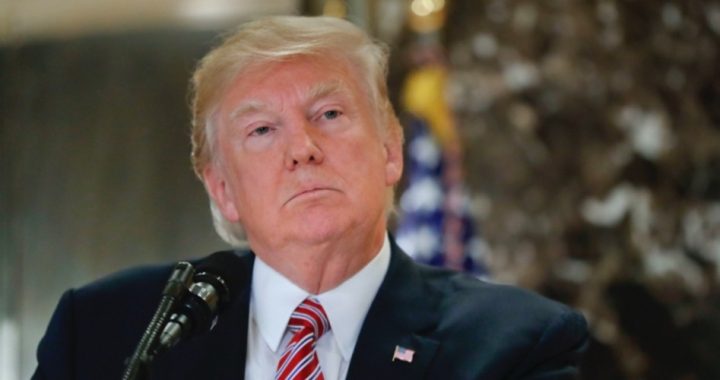
In a move that precipitated immediate anger from those using fetal tissue in medical research, the Trump administration has terminated a second research contract, this time with the University of California – San Francisco (UCSF). Not surprisingly, Wednesday’s announcement did not set too well with the chancellor of the university, Sam Hawgood, who denounced the decision as “politically motivated.”
CNS News reported in 2018 that the UCSF had used money obtained from the National Institute for Health (NIH) to purchase fetal body parts to conduct the “humanized mice” experiments. According to the report, the aborted unborn babies were 18 to 24 weeks gestation, taken from women with “normal pregnancies,” who chose to have their babies aborted “for non-medical reasons.”
Hawgood issued a statement that Trump’s action had ended a 30-year partnership between the university and NIH, which had funded the fetal cell research. “USCF exercised appropriate oversight and complied with all state and federal laws,” Hawgood complained. “We believe this decision to be politically motivated, shortsighted and not based on sound science.”
The decision did not end all government-funded research using fetal tissue, and privately funded research will continue. After a review of how federal research dollars were being spent on fetal tissue research, the NIH froze the procurement of additional fetal tissue. The research project at San Francisco targeted an attempt to develop a treatment for HIV (the virus which is said to cause AIDS). Researchers there have been trying to produce a human-like immune system in mice.
Proponents of using fetal tissue in medical experiments argue that the use of the tissue is highly valuable in medical research. For example, they contend that its use helps develop vaccines for such diseases as rabies. And besides that, they say, the tissue (which comes from the remains of an aborted unborn baby) is otherwise going to be discarded, anyway. As Dr. Lawrence Goldstein, a regenerative medicine specialist at the University of California – San Diego, put it, “Prohibiting valuable research that uses fetal tissue that is otherwise going to be discarded doesn’t make any sense. It blocks important future research vital to the development of new therapies.”
Senator Roy Blunt (R-Mo.), however, responded, “Today’s action is a significant pro-life victory.” Blunt, who chairs the Appropriations Subcommittee that oversees the NIH, said that NIH “has directed funding toward the development of alternative research methods that do not rely on human fetal tissue from elective abortions and I remain supportive of that.”
Pro-lifers have expressed concern that the use of the tissues from aborted unborn babies for medical research provides an incentive to perform more abortions. Planned Parenthood officials have been videotaped offering aborted baby parts for such research. For example, Melissa Farrell, director of research for Planned Parenthood Gulf Coast, was videotaped telling two actors who posed as representatives for an organ procurement company that Planned Parenthood had been active in selling aborted baby parts for some time. She also noted that they can alter abortion procedures to make sure they can have baby parts to sell.
In the case of UCSF, a nine-month investigation by the U.S. Department of Health and Human Services found a lack of consent forms.
Despite the claims of the benefits of medical research with tissues from aborted babies, there are many who argue that there are good alternatives to using fetal tissue, such as stem cells from bone marrow, circulating blood, umbilical cords, and amniotic fluid. Even neural stem cells from cadavers can be successfully used. According to an article in The Federalist, “Examples of treatments developed using non-fetal sources are endless. To name a few, insulin for diabetes, Herceptin for breast cancer, and TPA for heart attack and stroke were all developed using non-fetal tissue sources. There are more than 70 successful treatments developed using adult stem cell sources.”
The Bedford Research Foundation states, “There are two main problems with the use of embryonic stem cells for therapeutic purposes. First is the moral and ethical debate that surrounds the use of a fertilized human egg for research and therapy. Second is the potential for tissue rejection (similar to the rejection in a liver or blood transplant) that could limit the therapeutic usefulness of embryonic stem cells.”
Another concern, as expressed by Representative Sean Duffy (R-Wis.) and Dr. Kathleen Schmainda (an associate scholar with Charlotte Lozier Institute) in The Federalist article, is that use of fetal tissue in research could keep many “talented young people” from pursuing a career in science because they are “not willing to compromise their consciences regarding life.”
For all of these reasons, the Trump administration’s action is a move in the right direction.
Photo of President Trump: AP Images



